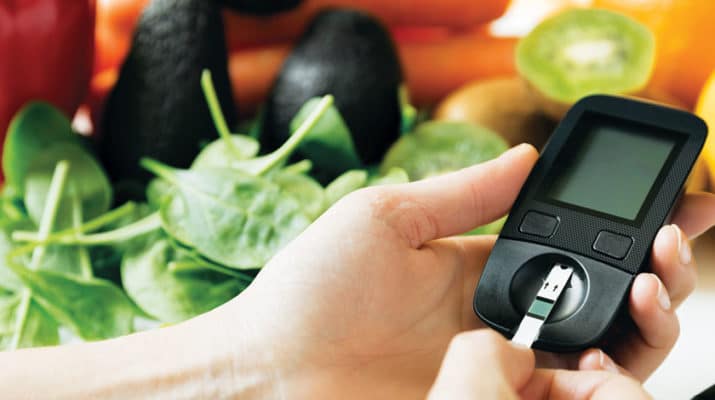Local diabetes education program builds awareness in Oneida County
By Daniel Baldwin
The trend of New York state residents diagnosed with diabetes has increased the past 15 years, according to the U.S. Diabetes Surveillance System.
But no area throughout the state had the greatest number of diabetics than Oneida County.
In the Surveillance System study, Oneida County’s average amount of diabetics exceeded New York state’s average.
Most people throughout the United States get Type 2 diabetes, according to CNY Diabetes Education Director Caroline Jacobus, and eating access amounts of sugar is one way to get this type.
People who are diagnosed with diabetes and leave it unattended have a greater risk of getting a heart attack, stroke, or any other heart-related disease. This disease could also damage a person’s kidneys, eyes, and blood vessels.
“The majority of people with diabetes have Type 2 diabetes, and there is a very strong genetic component with this type,” Jacobus said. “Uncontrolled diabetes can lead to unwanted complications such as eye, kidney, nerve disease, heart attack and stroke.
“It should be taken very seriously and the person should come up with strategies to control this chronic disease.”
Based on U.S. Diabetes Surveillance System data and the health dangers that await a person after getting diabetes, it is no question that this disease is the glaring issue throughout Oneida County that must be focused on in order to prevent the increasing trend of heart-related deaths.
CNY Diabetes Education was one of several local organizations that stepped up to the plate to address the county’s diabetes increase and raise awareness of this disease during National Diabetes Month in November.
CNY Diabetes Education provides individual and group class sessions that teach residents how to manage diabetes and avoid getting these heart-related diseases. This health program has been serving the Mohawk Valley community since 1993 and it is supported under the Mohawk Valley Health System Medical Group.
“Research shows that more than 56 percent of people with pre-diabetes may be able to delay or prevent a diabetes diagnosis by participating in a year-long lifestyle changing program,” Jacobus said. “Diabetes is a major chronic disease across the U.S. with serious complications if not controlled.
Leads to other disease processes
“People who have diabetes are at greater risk of heart disease. Attending diabetes education will assist them with lifestyle changes to support risk reduction. We provide comprehensive education services that teach people how to manage diabetes, including individual and group sessions offered in the morning, afternoon and evening.”
During National Diabetes Month, the program was less focused on fundraising and more driven on advertising.
The program’s communications specialist John Latini said the organization recorded and aired a radio commercial highlighting diabetes awareness.
The group’s name and message was up on billboards, and it also posted weekly diabetes education videos on Facebook.
“It’s important for people to know that we have an award-winning diabetes education program that helps people with pre-diabetes or managing their diabetes,” Latini said. “I think people tend to stay away from it because they’re unsure what it really is. So our main focus is trying to highlight this program for people so they can take advantage of it.”
Throughout the rest of the year, the CNY Diabetes education program puts together community health events at Union Station in Utica.
The health events the group put on earlier in the year had good turnouts, according to Latini, and they serve as another opportunity for residents to learn how to manage diabetes and avoid getting other diseases.
“These health events are system-wide,” Latini said, “so it’s all of our services that we offer highlighting everything that we offer as an organization. We do things including cancer services, cardiac services, diabetes, and stroke awareness. We’re just letting the community know everything we have to offer.”
“I think that National Diabetes Month helps people realize that they are not alone,” Latini said, “and that they do have the support and resources out there available to manage and live with it.”

